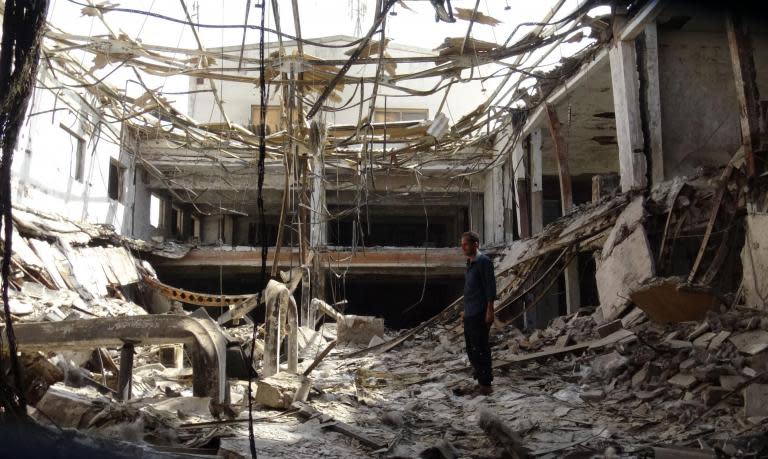Yemenis desperately need more funding. As I've seen myself in Hodeidah, millions more lives are at stake
Just when you thought the situation in Yemen couldn’t get any worse, the latest analysis shows that, in fact, it has, with more than 60,000 additional people on the brink of famine over the past two months.
But what can we do about it?
The best thing we can do is stop the fighting. I’m currently in Yemen, and people have told me they are fed up with this war. They keep thinking it will be over soon, and are continually disappointed. The wider reverberations of war affect more than 24 million Yemenis, making this the largest humanitarian disaster in the world today. The longer the war continues, the worse it gets.
We need our government, and all governments, to insist on an immediate ceasefire for the whole country. There have been multiple violations of international humanitarian law, including airstrikes and ground attacks killing civilians, and significant blockages of access for humanitarian aid. December’s ceasefire in Hodeidah is just about holding, but attacks continue across the rest of the country. In many areas they have increased.
Yemenis have told me they want every country around the world to honour the arms trade treaty. All countries must stop selling arms to all and any parties to this conflict – you can help by telling your MP that this is what you want the British government to do.
We also need our government to use all of its diplomatic might to ensure the current peace talks are meaningful. That means including women’s rights as a condition for any funding.
I’ve seen with my own eyes how our humanitarian workers are stopped and checked on a daily basis as they try to help people in need. We need the authorities throughout Yemen to do everything they can to facilitate and not frustrate the provision of humanitarian aid. In the absence of peace, aid is keeping millions of Yemenis alive. The UN estimates that well over 17,000 innocent people have been killed directly since the conflict began.
This week I have been in the vital port city of Hodeidah, where 70 per cent of Yemen’s food and fuel come in. The economy is in crisis and millions of people simply can’t afford to eat, because they have lost their livelihoods. Their business might have been destroyed, or they were forced to flee from where they work. An offensive last summer unleashed fighting that displaced 650,000 people. I heard that people left behind their homes, their children’s schools and toys, and their jobs, to find safety. At least 3.3 million people have been forced to flee – many people, including aid workers, have been forced to move more than once.
One man called Adam told me he used to earn a living by using his motorbike to give taxi rides, but because of the war he no longer earns anything. People are not allowed to move around and people in his community don’t have enough money to pay him. While $80 a month in humanitarian aid gives his family of 10 people just enough calories to keep going, it is still not enough. But all he really wants is peace so he can work again.
A lack of clean water caused a cholera epidemic last year. I saw children walking with jerry cans to collect water. A woman called Habiba told me she had to walk for three hours every day to collect water. We are repairing water supplies to hundreds of thousands of people. Habiba now has metered water piped right up to her mud and straw home. This long-term solution means we can help people for many years after the war has finished. Children have time for school and Habiba has more time to try to earn a living.
As in all crises, women are disproportionately affected, experiencing domestic abuse in the home and harassment in the street. In a Care International survey last year, displaced women talked about how it is rare for them to go outside without being sexually harassed. Some reported giving up and going home without vital supplies rather than enduring hours of harassment by men in aid queues. Others said they bitterly accept harassment as the price to pay for feeding their families. We are now ensuring there are separate queues for men and women.
On Tuesday, governments will gather in Geneva for a high-level pledging conference to raise $4bn for the humanitarian response in Yemen.
It is vital that the UK and other governments increase aid for Yemen, investing not just to save lives today and tomorrow, but also ensuring people have long-term livelihoods to build on, long after this conflict is finally over.
Laurie Lee is a spokesperson for Care International UK

 Yahoo News
Yahoo News 

